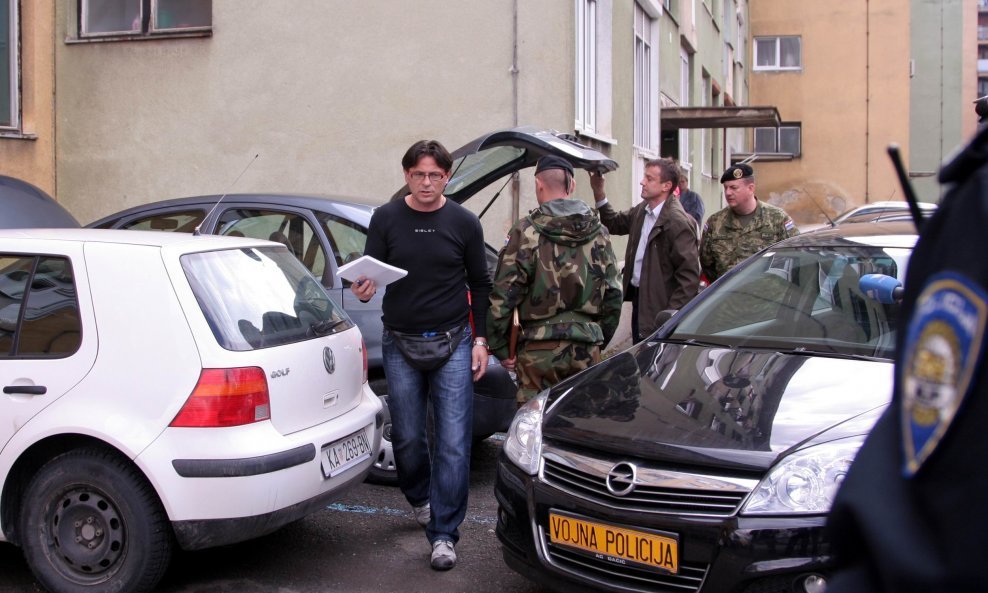The military police in Karlovac on Wednesday questioned until 11 pm Croatian Defence Ministry employee Enes Felic in an investigation into the publishing of data from the war veterans register on the Internet.
Upon leaving the Karlovac Military Police Department, Felic told Hina that he had not been arrested and that he was going home. He said that he had been told that the police would contact him so that they could examine together electronic and other materials confiscated during a search of his home and workplace at the Karlovac Defence Department.
Felic said that he was expected to report to his new place of work at Zagreb airport on Thursday morning.
The search of Felic's apartment, basement, car and workplace lasted from 7 am to 5 pm. Around 6 pm, he contacted attorney Zvonko Zaja because, he said, the civil police went away in the early evening hours and were replaced by investigators of the Military Police, which led him to believe that he "would be framed".
The police on Wednesday carried out investigations against four people who reside in Karlovac County and the city of Karlovac, searching their homes, business offices and cars, Crime Police director Vitomir Bijelic said in Croatian Television's political programme "Otvoreno".
"There were about a dozen searches and a certain amount of computer equipment was confiscated," Bijelic said, adding that about a dozen computers were temporarily seized.
When asked why the investigation was being conducted in Karlovac, Bijelic said that the civil and military police were coordinating their investigations and that the military police, too, had followed the movement of data from the veterans' register within the Defence Ministry and found a lead at the Karlovac Defence Department. All four persons investigated yesterday - two active members of the military staff and two civilians - could have had access to those data in 2006, when the data are believed to have gone missing, Bijelic said.
When asked if the police obtained information from the FBI as to who had put the data on a server in the USA, Bijelic said that US and German colleagues had been contacted on April 6 because the computer trail of the data published on the Internet went via those two countries. After that, the Chief State Prosecutor's Office requested international legal assistance in the case, he said.
When asked if he would apologise to Marko Rakar of Zagreb, who was also investigated and whose home was searched in the ongoing investigation, Bijelic said that he apologised to Rakar, but that he was only doing his job of enforcing the law. The police had obtained information that Rakar could have information about a criminal offence, Bijelic said, adding that Rakar had not been and was not suspected of any offence.































